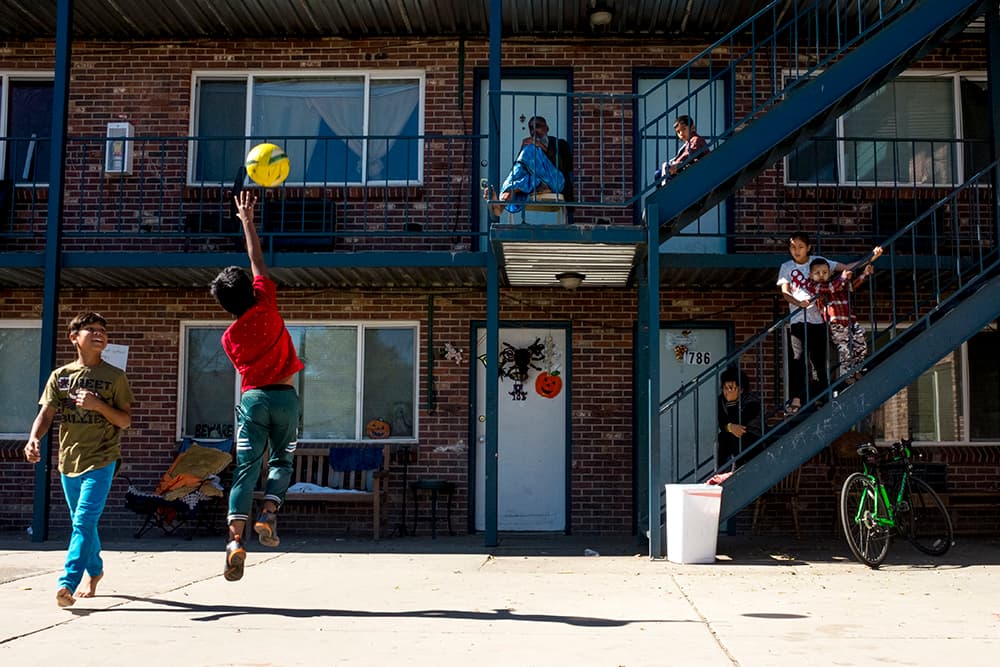The first thing you need to know about Aurora's mayor -- whose seat is up for grabs next month -- is that it's not much like Denver's mayor. Nope, the Mile High City's eastern neighbor has the same position, but Aurora has what's called a council-manager form of government that makes it different than Denver's, where the mayor is boss.
Six candidates are vying for the position to replace Mayor Bob LeGare, who was appointed in May following the death of longtime mayor Steve Hogan.
Denver Deputy City Attorney Michael Hyman, who formerly served as city attorney for Aurora, said Aurora's form of government means the mayor isn't chief executive, as Mayor Michael Hanock is here. That day-to-day supervision falls to the city manager. The city manager is appointed by the Aurora City Council.
A charter change in the 1990s declared the mayor would be a full-time officer of the city, which means the position would be a figurehead role. The mayor is allowed a vote on City Council, but only to break a tie or to create one.
Hyman has worked for multiple Aurora mayors. Whether they take an active approach or more of a figurehead approach is up to the person Aurorans elect.
"I don't know how each of the candidates will treat the job," Hyman said. "What the mayor's office is and what the mayor's office does is very much a creation of the man or woman who gets elected to the office."
When asked what concerns Aurora faced, the six candidates named topics that will sound familiar to Denverites: Handling growth, transportation, housing, public safety and education.
Like Denver, Aurora's races are nonpartisan. But unlike Denver, Republicans and unaffiliated candidates are more likely to contend along with Democrats. That's partially because the city is spread across three counties with electoral bases that vary by political affiliation, including Adams, Arapahoe and Douglas counties.
Here are the six candidates Aurora voters will choose from on Nov. 5.
Marsha Berzins
Councilwoman Berzins has lived in Aurora since 1979, and served as mayor pro tem in 2018. She grew up in the South -- Kentucky, Tennessee and Alabama. She's spent 10 years serving on the Council and seven years serving on city boards and commissions.
She was elected to her current seat in 2017. She declined to reveal her party affiliation.
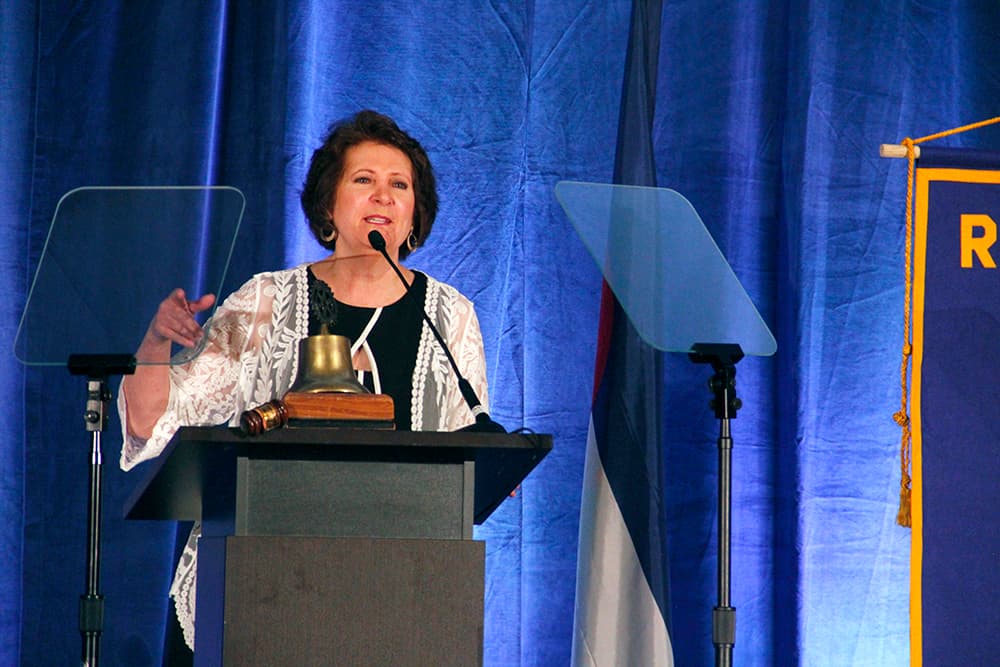
"I do know what being mayor means, what you can and can't do," Berzins said. She added, "I have been on the Council long enough, (and I'm) smart enough to know that you represent the whole city, not just your party."
Voters have told her public safety is among their biggest concerns, she said. Berzins said making sure people feel safe in their homes is a top priority for her; she says it's intertwined with a goal to bring more jobs. Addressing public safety will mean working closely with the police chief and the fire chief, and she wants to convene a task force including the school superintendent and other leaders to address public safety needs in Aurora.
"I don't want children to be afraid to go to school," Berzins said. "We have to do something about that."
Fixing roads will take millions of dollars, Berzins said, but that's money she's hoping to get for the city by working with surrounding counties. She envisions going to the Capitol and to Washington for grants helping them pay for improvements.
Berzins said she wants to take a look at development incentives to create housing for a doctor's salary but also for folks seeking a middle-class lifestyle. She knows people will continue moving into the city, she said, and wants to have housing units for all income levels. She wants to make sure there are options for residents with a doctor's salary but also for folks seeking a middle-class lifestyle.
Berzins intends to borrow a page from Hogan's book, whom she said worked to build good working relationships with other city mayors.
Mike Coffman
Coffman is back on the campaign trail this year after losing a high-profile U.S. House race last year. The former Aurora congressman has done pretty well this time around, posting record fundraising numbers and earning LeGare's endorsement. He's a Republican, but said he's not interested in partisan politics. He's lived in Aurora for the last 55 years and represented the city in the Colorado General Assembly.
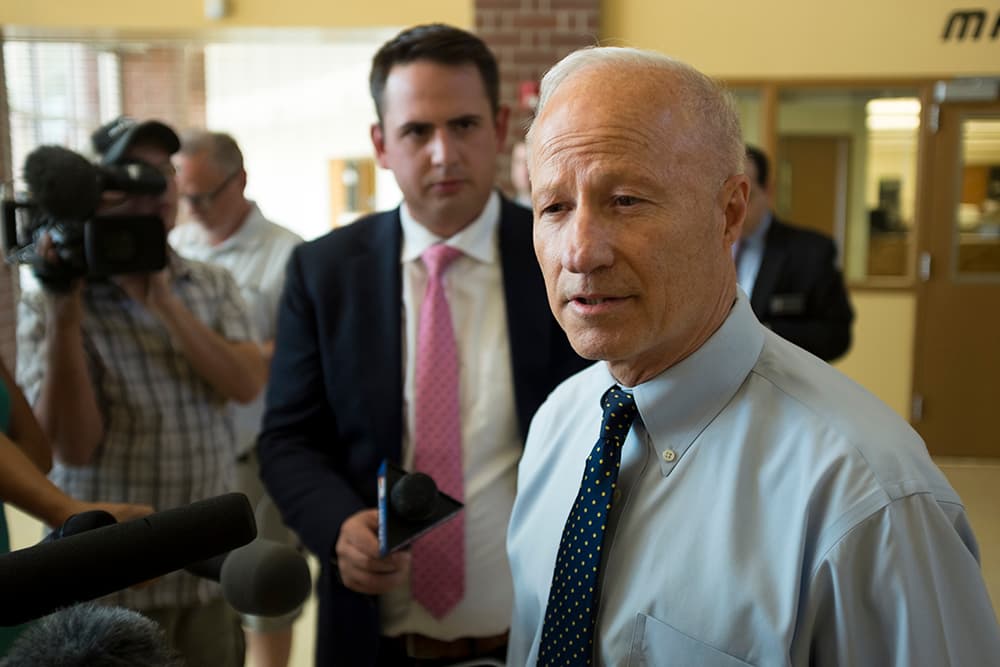
"I have a reputation to get things done," Coffman said.
Growth is perhaps the most pressing concern residents have, especially in the city's southeast side, he said. More people means more cars on the road, so tackling traffic issues is one of his chief goals. He thinks there's been too much emphasis on developer-driven growth and turning the city into "a bedroom community" where people work outside the city (like Aurora residents who commute to Denver).
Coffman wants to oversee a fundamental change in the city's identity. He said he wants to make better use of Aurora's undeveloped land by focusing on growth for commercial development that gives residents jobs within the city limits. He would like to see some transit-oriented development closer to light rail lines but warns that any growth must be sensitive to avoid gentrification.
He says he wants to create a more startup-friendly environment to attract the technology and aerospace industries. He would like to attract larger businesses to the city but isn't supportive of using things like state tax incentives to lure them. He would support tax increment financing.
Coffman said he wants new businesses that bring jobs that pay a living wage. He said keeping more residents employed locally could help curb traffic woes.
"I want Aurora to have a different identity," Coffman said. He added, "There's a lot of potential because of (the city's) proximity to the airport."
He doesn't see the city solving things like transportation without regional assistance. He wants to work together with other surrounding mayors and said working with cities like Denver is important.
Ryan Frazier
The former two-term, at-large Aurora councilman moved to Aurora 22 years ago from North Carolina after the U.S. Navy shipped him off to Buckley Air Force Base. He ran as a Republican for U.S. Senate in 2016 but lost in the primary. He now runs a consulting firm and is now unaffiliated.
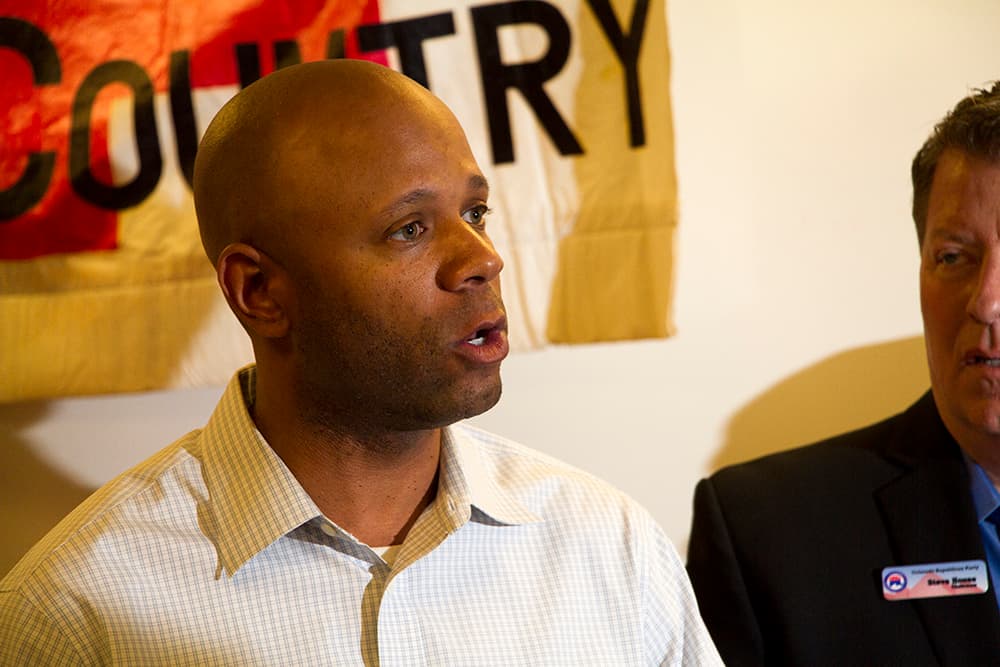
"It's not about authority here," Frazier said about the mayor's office. "It's about the ability to wield the influence of the office of mayor, which is significant in Aurora."
He's narrowed down four major areas of concern: Growth, public safety, education and housing. Addressing growth in Aurora means ensuring residents have adequate city infrastructure to support the growing population, which to him would mean things like expanding roads (Gun Club Road is one possible candidate Frazier said is ripe for expansion).
But that also means improving people's access to mass transit, like improving access to the Nine Mile Station Park-n-Ride.
For public safety, he wants to "strengthen" the relationship between police and residents, which would include providing more meeting opportunities between the two to build trust and respect. He also wants to make sure first responders can continue to afford to live in Aurora.
Education is another high priority. He wants to improve Aurora Public Schools (the city also has schools from the Cherry Creek School District). Frazier co-founded a charter school in Aurora called High Point Academy.
"Broadly speaking, we need to do more to support our teachers, pay them better and invest in early childhood education," Frazier said.
Frazier said he thinks he can work closely with Denver Mayor Michal Hancock's administration to put together agreements and push for more transportation investments in the area.
"Regional cooperation is going to be vital to the overall vibrancy of the Aurora-Denver metro area," Frazier said.
Tiffany Grays
Grays was unable to get enough signatures to petition onto the ballot so she's running as a write-in candidate. She's suing the city to have her name included. She's a Democrat.
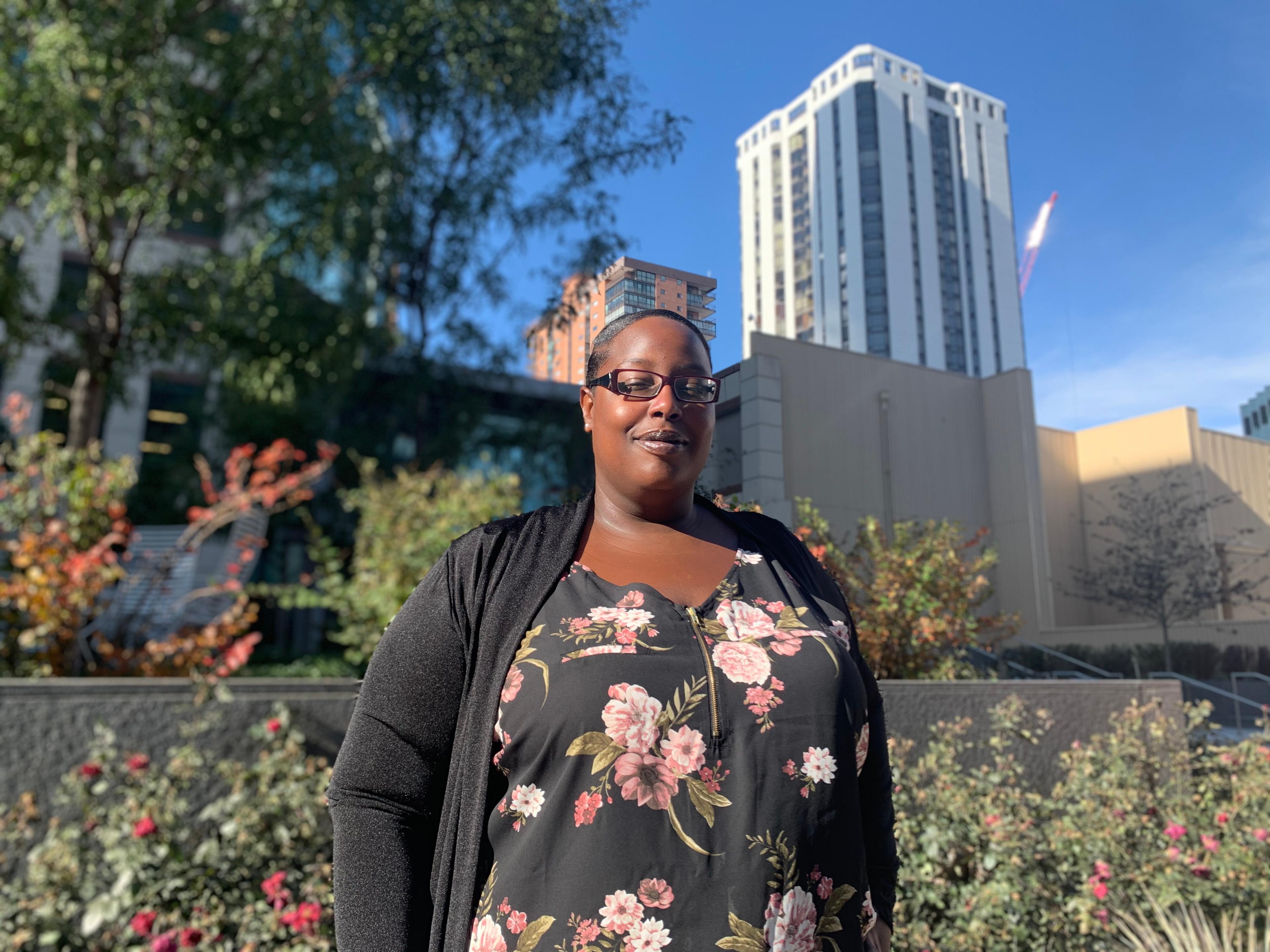
Grays is an advocate for criminal justice reform. An Aurora native, she graduated from Aurora Central High School. She has never run for public office and is currently unemployed, but believes her roots in the city gives her a leg up on the other candidates.
"I bring a voice that is necessary and needed in today's environment," Grays said.
Public safety is a concern she said many voters have in Aurora, as well as concerns about the city's homeless population. Housing is another obstacle she said people are struggling with as the city continues to grow but resources lag behind.
Grays wants to push for creating a downtown area, which she said the city doesn't have. To do this, she wants to attract more businesses and corporations paying livable wages to create what she calls an "Aurora economic ecosystem." She wants the money raised in Aurora to stay there.
She called for working closely with Denver and surrounding cities to address public safety concerns.
"We all have to be at the table willing to work together," Grays said.
Omar Montgomery
Montgomery works at University of Colorado Denver as an adjunct ethnic studies instructor and is the president of the Aurora NAACP Branch. He's served on a city budget commission and in the advisory board for Aurora Police. He's a first-time candidate who came to Aurora in 2002 from California.
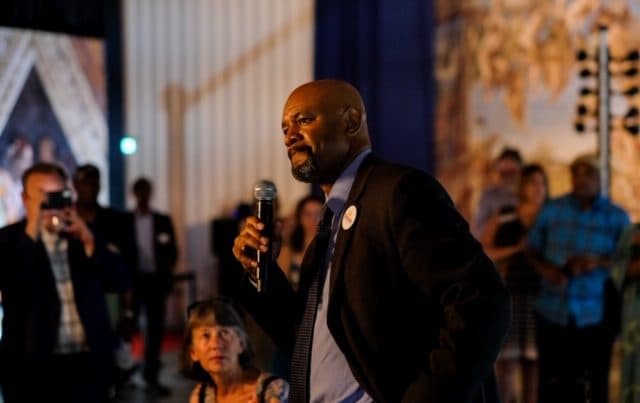
"Everybody should have some kind of voice in the governmental process," Montgomery said.
A Democrat, Montgomery said voters have told him they would like to see a cohesive City Council that gets things done. His most pressing topics are housing and transportation. He wants to work closely with RTD to address their problems, including cutting back service.
For housing, he would like to find ways to set aside land for community trusts and duplicate efforts like the Ready to Work program, a workforce focused initiative that offers housing for people experiencing homelessness.
"We really have a lot to tackle when it comes to housing," Montgomery said.
He wants to improve the relationship between police and residents. He's also hoping to take another look at the police chief hiring process (Aurora Police Chief Nick Metz is retiring). Montgomery is interested in bringing an office similar to Denver's Office of the Independent Monitor to Aurora.
Montgomery said it's important to work together with cities like Denver and surrounding counties. He especially sees the importance of working with Denver for changes to the East Colfax corridor, which runs through both cities.
He added that development, housing, homelessness and the environment are, "all regional conversations. If you don't have those relationships, it will be difficult to have stuff done."
Renie Peterson
Peterson grew up in Aurora and served on was elected to City Council in 2005, representing northeast Aurora until 2017. She's currently unemployed.
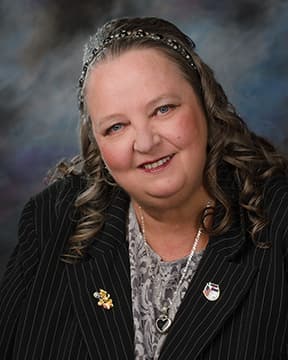
Growth is at the top of Peterson's mind -- particularly water conservation. She worries development in the city will mean they will run out of water over the next several years. Handling the rapid population increase means providing more housing, specifically the kind of starter homes that young people and first-time homeowners would be interested in buying, she said. She wants Aurora to allow so-called granny flats in the city (accessory dwelling units). The Aurora City Council heard a zoning change proposal to allow them last year.
Such units -- smaller guesthouses on next to larger homes on the same plot -- help provide affordable housing options, and help people aging in place while providing additional income for homeowners.
Another option: Bringing tiny home villages to Aurora. She toured such homes in Portland and Seattle, although Denver has some too. She imagines putting them in northeast Aurora, an area that has lots of mobile home parks. For the southern part of the city, she would like to bring more amenities, like a performing arts center.
She's interested in revamping old Aurora along East Colfax and East Montview that could include high-rise buildings and apartments with studio units for younger residents.
"Revitalization of the old, original Aurora, could help with (providing) young people places to live that are affordable," Peterson said.
To help fix roads and reduce traffic congestion Peterson is proposing charging oil and gas companies to pay impact fees for drilling in the city limits. She mentioned voters' rejection of two recent ballot measures for fixing roads as proof that it's time to think outside the box.
She would follow Hogan's lead of working with Denver on regional projects.
"We have to work with others to improve the state, regionally. I would be very supportive of embracing our neighbors to the west and the north," Peterson said.

